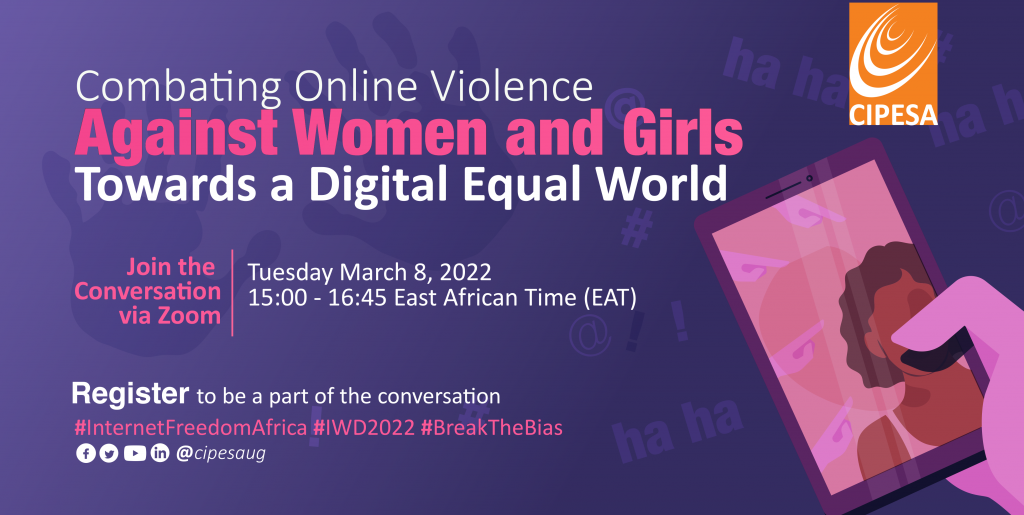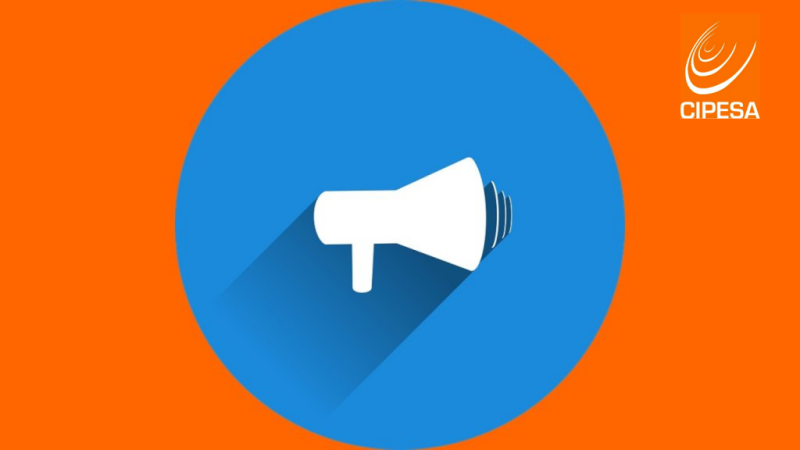The Collaboration on International ICT Policy for East and Southern Africa (CIPESA) has joined over 125 organisations and academics who work to protect and advance human rights, online and offline in submitting a letter to the United Nations Ad Hoc Committee on Cybercrime. The letter stresses that the process through which the Ad Hoc Committee does its work includes robust civil society
participation throughout all stages of the development and drafting of a convention, and that
any proposed convention include human rights safeguards applicable to both its substantive and
procedural provisions. The first session of the Ad Hoc Committee, which was scheduled to begin on January 17, 2022, has been rescheduled to begin on February 28, 2022, due to the ongoing situation concerning the coronavirus disease. See the full letter below.
————————————————————————————————————————————-
December 22, 2021
H.E. Ms. Faouzia Boumaiza Mebarki
Chairperson
Ad Hoc Committee to Elaborate a Comprehensive International Convention on Countering the Use of Information and Communication Technologies for Criminal Purposes
Your Excellency,
We, the undersigned organizations and academics, work to protect and advance human rights, online and offline. Efforts to address cybercrime are of concern to us, both because cybercrime poses a threat to human rights and livelihoods, and because cybercrime laws, policies, and initiatives are currently being used to undermine people’s rights. We therefore ask that the process through which the Ad Hoc Committee does its work includes robust civil society participation throughout all stages of the development and drafting of a convention, and that any proposed convention include human rights safeguards applicable to both its substantive and procedural provisions.
Background
The proposal to elaborate a comprehensive “international convention on countering the use of information and communications technologies for criminal purposes” is being put forward at the same time that UN human rights mechanisms are raising alarms about the abuse of cybercrime laws around the world. In his 2019 report, the UN special rapporteur on the rights to freedom of peaceful assembly and of association, Clément Nyaletsossi Voule, observed, “A surge in legislation and policies aimed at combating cybercrime has also opened the door to punishing and surveilling activists and protesters in many countries around the world.” In 2019 and once again this year, the UN General Assembly expressed grave concerns that cybercrime legislation is being misused to target human rights defenders or hinder their work and endanger their safety in a manner contrary to international law. This follows years of reporting from non-governmental organizations on the human rights abuses stemming from overbroad cybercrime laws.
When the convention was first proposed, over 40 leading digital rights and human rights organizations and experts, including many signatories of this letter, urged delegations to vote against the resolution, warning that the proposed convention poses a threat to human rights.
In advance of the first session of the Ad Hoc Committee, we reiterate these concerns. If a UN convention on cybercrime is to proceed, the goal should be to combat the use of information and communications technologies for criminal purposes without endangering the fundamental rights of those it seeks to protect, so people can freely enjoy and exercise their rights, online and offline. Any proposed convention should incorporate clear and robust human rights safeguards. A convention without such safeguards or that dilutes States’ human rights obligations would place individuals at risk and make our digital presence even more insecure, each threatening fundamental human rights.
As the Ad Hoc Committee commences its work drafting the convention in the coming months, it is vitally important to apply a human rights-based approach to ensure that the proposed text is not used as a tool to stifle freedom of expression, infringe on privacy and data protection, or endanger individuals and communities at risk.
The important work of combating cybercrime should be consistent with States’ human rights obligations set forth in the Universal Declaration of Human Rights (UDHR), the International Covenant on Civil and Political Rights (ICCPR), and other international human rights instruments and standards. In other words, efforts to combat cybercrime should also protect, not undermine, human rights. We remind States that the same rights that individuals have offline should also be protected online.
Scope of Substantive Criminal Provisions
There is no consensus on how to tackle cybercrime at the global level or a common understanding or definition of what constitutes cybercrime. From a human rights perspective, it is essential to keep the scope of any convention on cybercrime narrow. Just because a crime might involve technology does not mean it needs to be included in the proposed convention. For example, expansive cybercrime laws often simply add penalties due to the use of a computer or device in the commission of an existing offense. The laws are especially problematic when they include content-related crimes. Vaguely worded cybercrime laws purporting to combat misinformation and online support for or glorification of terrorism and extremism, can be misused to imprison bloggers or block entire platforms in a given country. As such, they fail to comply with international freedom of expression standards. Such laws put journalists, activists, researchers, LGBTQ communities, and dissenters in danger, and can have a chilling effect on society more broadly.
Even laws that focus more narrowly on cyber-enabled crimes are used to undermine rights. Laws criminalizing unauthorized access to computer networks or systems have been used to target digital security researchers, whistleblowers, activists, and journalists. Too often, security researchers, who help keep everyone safe, are caught up in vague cybercrime laws and face criminal charges for identifying flaws in security systems. Some States have also interpreted unauthorized access laws so broadly as to effectively criminalize any and all whistleblowing; under these interpretations, any disclosure of information in violation of a corporate or government policy could be treated as “cybercrime.” Any potential convention should explicitly include a malicious intent standard, should not transform corporate or government computer use policies into criminal liability, should provide a clearly articulated and expansive public interest defense, and include clear provisions that allow security researchers to do their work without fear of prosecution.
Human Rights and Procedural Safeguards
Our private and personal information, once locked in a desk drawer, now resides on our digital devices and in the cloud. Police around the world are using an increasingly intrusive set of investigative tools to access digital evidence. Frequently, their investigations cross borders without proper safeguards and bypass the protections in mutual legal assistance treaties. In many contexts, no judicial oversight is involved, and the role of independent data protection regulators is undermined. National laws, including cybercrime legislation, are often inadequate to protect against disproportionate or unnecessary surveillance.
Any potential convention should detail robust procedural and human rights safeguards that govern criminal investigations pursued under such a convention. It should ensure that any interference with the right to privacy complies with the principles of legality, necessity, and proportionality, including by requiring independent judicial authorization of surveillance measures. It should also not forbid States from adopting additional safeguards that limit law enforcement uses of personal data, as such a prohibition would undermine privacy and data protection. Any potential convention should also reaffirm the need for States to adopt and enforce “strong, robust and comprehensive privacy legislation, including on data privacy, that complies with international human rights law in terms of safeguards, oversight and remedies to effectively protect the right to privacy.”
There is a real risk that, in an attempt to entice all States to sign a proposed UN cybercrime convention, bad human rights practices will be accommodated, resulting in a race to the bottom. Therefore, it is essential that any potential convention explicitly reinforces procedural safeguards to protect human rights and resists shortcuts around mutual assistance agreements.
Meaningful Participation
Going forward, we ask the Ad Hoc Committee to actively include civil society organizations in consultations—including those dealing with digital security and groups assisting vulnerable communities and individuals—which did not happen when this process began in 2019 or in the time since.
Accordingly, we request that the Committee:
● Accredit interested technological and academic experts and nongovernmental groups, including those with relevant expertise in human rights but that do not have consultative status with the Economic and Social Council of the UN, in a timely and transparent manner, and allow participating groups to register multiple representatives to accommodate the remote participation across different time zones.
● Ensure that modalities for participation recognize the diversity of non-governmental stakeholders, giving each stakeholder group adequate speaking time, since civil society, the private sector, and academia can have divergent views and interests.
● Ensure effective participation by accredited participants, including the opportunity to receive timely access to documents, provide interpretation services, speak at the Committee’s sessions (in-person and remotely), and submit written opinions and recommendations.
● Maintain an up-to-date, dedicated webpage with relevant information, such as practical information (details on accreditation, time/location, and remote participation), organizational documents (i.e., agendas, discussions documents, etc.), statements and other interventions by States and other stakeholders, background documents, working documents and draft outputs, and meeting reports.
Countering cybercrime should not come at the expense of the fundamental rights and dignity of those whose lives this proposed Convention will touch. States should ensure that any proposed cybercrime convention is in line with their human rights obligations, and they should oppose any proposed convention that is inconsistent with those obligations.
We would be highly appreciative if you could kindly circulate the present letter to the Ad Hoc Committee Members and publish it on the website of the Ad Hoc Committee.
Signatories,*
- Access Now – International
- Alternative ASEAN Network on Burma (ALTSEAN) – Burma
- Alternatives – Canada
- Alternative Informatics Association – Turkey
- AqualtuneLab – Brazil
- ArmSec Foundation – Armenia
- ARTICLE 19 – International
- Asociación por los Derechos Civiles (ADC) – Argentina
- Asociación Trinidad / Radio Viva – Trinidad
- Asociatia Pentru Tehnologie si Internet (ApTI) – Romania
- Association for Progressive Communications (APC) – International
- Associação Mundial de Rádios Comunitárias (Amarc Brasil) – Brazil
- ASEAN Parliamentarians for Human Rights (APHR) – Southeast Asia
- Bangladesh NGOs Network for Radio and Communication (BNNRC) – Bangladesh
- BlueLink Information Network – Bulgaria
- Brazilian Institute of Public Law – Brazil
- Cambodian Center for Human Rights (CCHR) – Cambodia
- Cambodian Institute for Democracy – Cambodia
- Cambodia Journalists Alliance Association – Cambodia
- Casa de Cultura Digital de Porto Alegre – Brazil
- Centre for Democracy and Rule of Law – Ukraine
- Centre for Free Expression – Canada
- Centre for Multilateral Affairs – Uganda
- Center for Democracy & Technology – United States
- Center for Justice and International Law (CEJIL) – International
- Centro de Estudios en Libertad de Expresión y Acceso (CELE) – Argentina
- Civil Society Europe
- Coalition Direitos na Rede – Brazil
- Código Sur – Costa Rica
- Collaboration on International ICT Policy for East and Southern Africa (CIPESA) – Africa
- CyberHUB-AM – Armenia
- Data Privacy Brazil Research Association – Brazil
- Dataskydd – Sweden
- Derechos Digitales – Latin America
- Defending Rights & Dissent – United States
- Digital Citizens – Romania
- DigitalReach – Southeast Asia
- Digital Rights Watch – Australia
- Digital Security Lab – Ukraine
- Državljan D / Citizen D – Slovenia
- Electronic Frontier Foundation (EFF) – International
- Electronic Privacy Information Center (EPIC) – United States
- Elektronisk Forpost Norge – Norway
- Epicenter.works for digital rights – Austria
- European Center For Not-For-Profit Law (ECNL) Stichting – Europe
- European Civic Forum – Europe
- European Digital Rights (EDRi) – Europe
- eQuality Project – Canada
- Fantsuam Foundation – Nigeria
- Free Speech Coalition – United States
- Foundation for Media Alternatives (FMA) – Philippines
- Fundación Acceso – Central America
- Fundación Ciudadanía y Desarrollo de Ecuador
- Fundación CONSTRUIR – Bolivia
- Fundacion Datos Protegidos – Chile
- Fundación EsLaRed de Venezuela
- Fundación Karisma – Colombia
- Fundación OpenlabEC – Ecuador
- Fundamedios – Ecuador
- Garoa Hacker Clube – Brazil
- Global Partners Digital – United Kingdom
- GreenNet – United Kingdom
- GreatFire – China
- Hiperderecho – Peru
- Homo Digitalis – Greece
- Human Rights in China – China
- Human Rights Defenders Network – Sierra Leone
- Human Rights Watch – International
- Igarapé Institute — Brazil
- IFEX – International
- Institute for Policy Research and Advocacy (ELSAM) – Indonesia
- The Influencer Platform – Ukraine
- INSM Network for Digital Rights – Iraq
- Internews Ukraine
- InternetNZ – New Zealand
- Instituto Beta: Internet & Democracia (IBIDEM) – Brazil
- Instituto Brasileiro de Defesa do Consumidor (IDEC) – Brazil
- Instituto Educadigital – Brazil
- Instituto Nupef – Brazil
- Instituto de Pesquisa em Direito e Tecnologia do Recife (IP.rec) – Brazil
- Instituto de Referência em Internet e Sociedade (IRIS) – Brazil
- Instituto Panameño de Derecho y Nuevas Tecnologías (IPANDETEC) – Panama
- Instituto para la Sociedad de la Información y la Cuarta Revolución Industrial – Peru
- International Commission of Jurists – International
- The International Federation for Human Rights (FIDH)
- IT-Pol – Denmark
- JCA-NET – Japan
- KICTANet – Kenya
- Korean Progressive Network Jinbonet – South Korea
- Laboratorio de Datos y Sociedad (Datysoc) – Uruguay
- Laboratório de Políticas Públicas e Internet (LAPIN) – Brazil
- Latin American Network of Surveillance, Technology and Society Studies (LAVITS)
- Lawyers Hub Africa
- Legal Initiatives for Vietnam
- Ligue des droits de l’Homme (LDH) – France
- Masaar – Technology and Law Community – Egypt
- Manushya Foundation – Thailand
- MINBYUN Lawyers for a Democratic Society – Korea
- Open Culture Foundation – Taiwan
- Open Media – Canada
- Open Net Association – Korea
- OpenNet Africa – Uganda
- Panoptykon Foundation – Poland
- Paradigm Initiative – Nigeria
- Privacy International – International
- Radio Viva – Paraguay
- Red en Defensa de los Derechos Digitales (R3D) – Mexico
- Regional Center for Rights and Liberties – Egypt
- Research ICT Africa
- Samuelson-Glushko Canadian Internet Policy & Public Interest Clinic (CIPPIC) – Canada
- Share Foundation – Serbia
- Social Media Exchange (SMEX) – Lebanon, Arab Region
- SocialTIC – Mexico
- Southeast Asia Freedom of Expression Network (SAFEnet) – Southeast Asia
- Supporters for the Health and Rights of Workers in the Semiconductor Industry (SHARPS) – South Korea
- Surveillance Technology Oversight Project (STOP) – United States
- Tecnología, Investigación y Comunidad (TEDIC) – Paraguay
- Thai Netizen Network – Thailand
- Unwanted Witness – Uganda
- Vrijschrift – Netherlands
- West African Human Rights Defenders Network – Togo
- World Movement for Democracy – International
- 7amleh – The Arab Center for the Advancement of Social Media – Arab Region
Individual Experts and Academics
- Jacqueline Abreu, University of São Paulo
- Chan-Mo Chung, Professor, Inha University School of Law
- Danilo Doneda, Brazilian Institute of Public Law
- David Kaye, Clinical Professor of Law, UC Irvine School of Law, former UN Special Rapporteur on Freedom of Opinion and Expression (2014-2020)
- Wolfgang Kleinwächter, Professor Emeritus, University of Aarhus; Member, Global Commission on the Stability of Cyberspace
- Douwe Korff, Emeritus Professor of International Law, London Metropolitan University
- Fabiano Menke, Federal University of Rio Grande do Sul
- Kyung-Sin Park, Professor, Korea University School of Law
- Christopher Parsons, Senior Research Associate, Citizen Lab, Munk School of Global Affairs & Public Policy at the University of Toronto
- Marietje Schaake, Stanford Cyber Policy Center
- Valerie Steeves, J.D., Ph.D., Full Professor, Department of Criminology University of Ottawa





